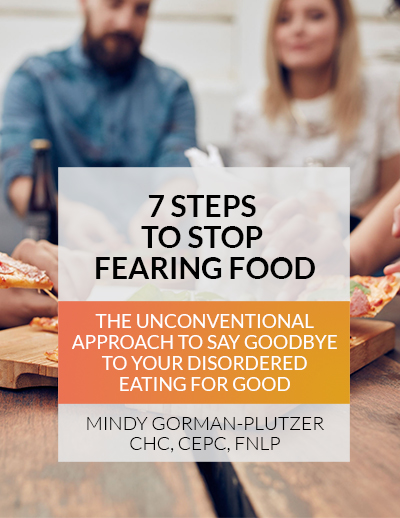Before you start purging your pantry, let’s do some fact-checking! Here’s a breakdown of the main American Heart Association claims and the real truth behind them…
They say: Saturated fats like coconut oil cause cardiovascular disease.
You should know: Research proves the fats in coconut oil can actually prevent risk factors for heart attack and stroke.
Coconut oil is primarily made up of medium chain triglycerides, or MCTs. MCTs are saturated fats – long painted as villains in the dietary world. However, studies show MCT oils help with two of the main risk factors for heart disease: obesity and arteriosclerosis.
Obesity alone is enough to damage your heart and cause an increased risk of cardiovascular issues. If you’re trying to lose weight, coconut oil can be a powerful ally.
That’s because the MCTs in coconut oil both increase your metabolism and make you feel less hungry – that’s key when you need to shed extra pounds and your risk of heart disease along with them!
But the heart health benefits of coconut oil don’t stop there.
The main cause of heart attack and stroke is arteriosclerosis – the hardening and narrowing of your arteries. Research shows MCTs like coconut oil help prevent both the fatty deposits and hardening of arteries that cause heart attack and stroke.
They say: Coconut oil increases LDL – your “bad” cholesterol.
You should know: Not all LDL is harmful, and coconut oil can even help reduce overall cholesterol levels and triglycerides.
Most people have heard of “good” and “bad” cholesterol. In the cholesterol story, HDL has been cast as the hero, while LDL plays the baddie.
But protecting your health isn’t nearly so black and white! Recent research proves that there is more than one kind of LDL, and that matters.
Harmful LDL particles are small and dense. If you want to witness their effects on your arteries, try throwing a handful of metal ball bearings at your bedroom wall. Small, dense particles of LDL cause that same kind of damage to your artery walls, putting you at risk for heart attack or stroke.
Here’s where it gets really interesting: modern medical research shows that not all LDL particles are small and dense – in other words, not all LDL is bad for you! There are also light, fluffy particles of LDL, more like cotton balls than BBs.
What’s more, it turns out that less LDL isn’t always a good thing. Recent studies prove that lowering your levels of big, fluffy particles of LDL can increase your risk of heart disease.
Bottom line: there is zero evidence that coconut oil causes an increase in harmful LDL. Not only that, research proves MCT oils can significantly lower overall cholesterol and triglyceride levels!
They say: Coconut oil has no known health benefits.
You should know: Coconut oil is a proven antibacterial and antifungal that can also help fight disease and aging.
Over two decades of scientific study prove coconut oil is an incredible multitasker. Not only can the fats in coconut oil help you lose weight and lower your risk of heart disease, they’re also fantastic for your brain and immune system!
So how to explain the American Heart Association’s claims to the contrary? They must have missed multiple studies that show how effective coconut oil is at fighting bacteria, viruses, and fungal infections. (No single drug on the market can make the same promise…)
Researchers also noticed the MCTs in coconut oil protect your brain and slow down the molecular changes that cause aging. That’s why these amazing fats are being studied for the prevention and treatment of Alzheimer’s and other serious neurological conditions.
As if all that wasn’t enough, coconut oil helps speed wound healing and makes your hair thicker and fuller by preventing protein loss.
I don’t know about you, but I’d count all those as pretty significant health benefits!
Conclusion: Coconut oil is great for your health in multiple ways.
Coconut oil can help prevent risk factors for heart attack and stroke, as well as lend a helping hand to your brain and immune system.
The current confusion about coconut oil is a perfect example of why it’s so important to have smart, accurate information from sources you can rely on. Please share this article with the people you care about – together, we can take back our health from clickbait articles and faux science!
Article Sources:
- http://circ.ahajournals.org/content/early/2017/06/15/CIR.0000000000000510
- http://ajcn.nutrition.org/content/89/4/1019.full
- http://www.ncbi.nlm.nih.gov/pubmed/19931617
- http://europepmc.org/abstract/med/3519928
- http://journals.plos.org/plosmedicine/article?id=10.1371/journal.pmed.1001212
- https://www.ncbi.nlm.nih.gov/pubmed/9806313
- http://ajcn.nutrition.org/content/89/4/1019.full
- http://europepmc.org/abstract/med/3519928
- http://www.ncbi.nlm.nih.gov/pubmed/19931617
- http://atvb.ahajournals.org/content/12/12/1410.short
- http://atvb.ahajournals.org/content/29/11/1975.full.pdf
- https://www.ncbi.nlm.nih.gov/pubmed/25655639
- https://www.ncbi.nlm.nih.gov/pubmed/564943
- http://online.liebertpub.com/doi/abs/10.1089/jmf.2006.1209
- http://www.touroinstitute.com/natural%20bactericidal.pdf
- https://www.google.com/patents/US6835750
- http://www.karger.com/Article/Abstract/313516
- https://goo.gl/RR1ZPv
- http://europepmc.org/abstract/med/12715094
-adapted from an article by JJ Virgin






0 Comments